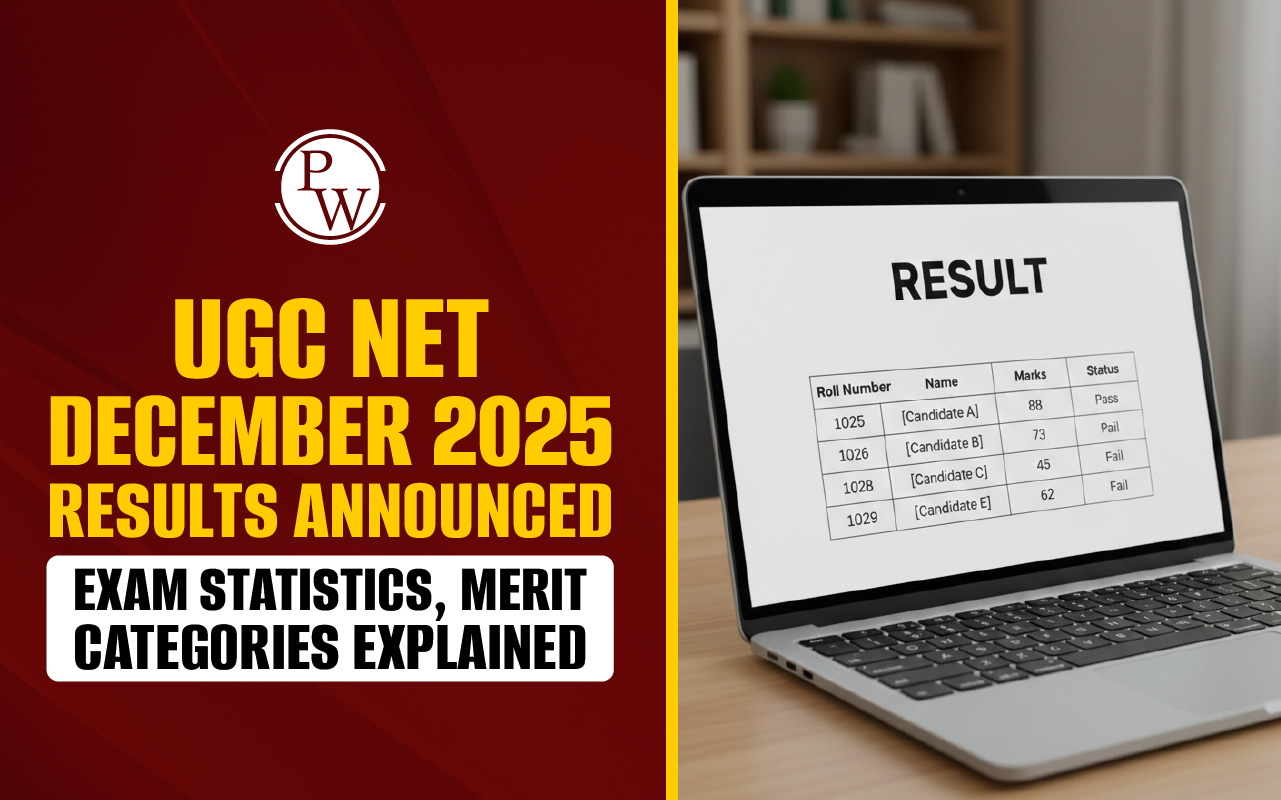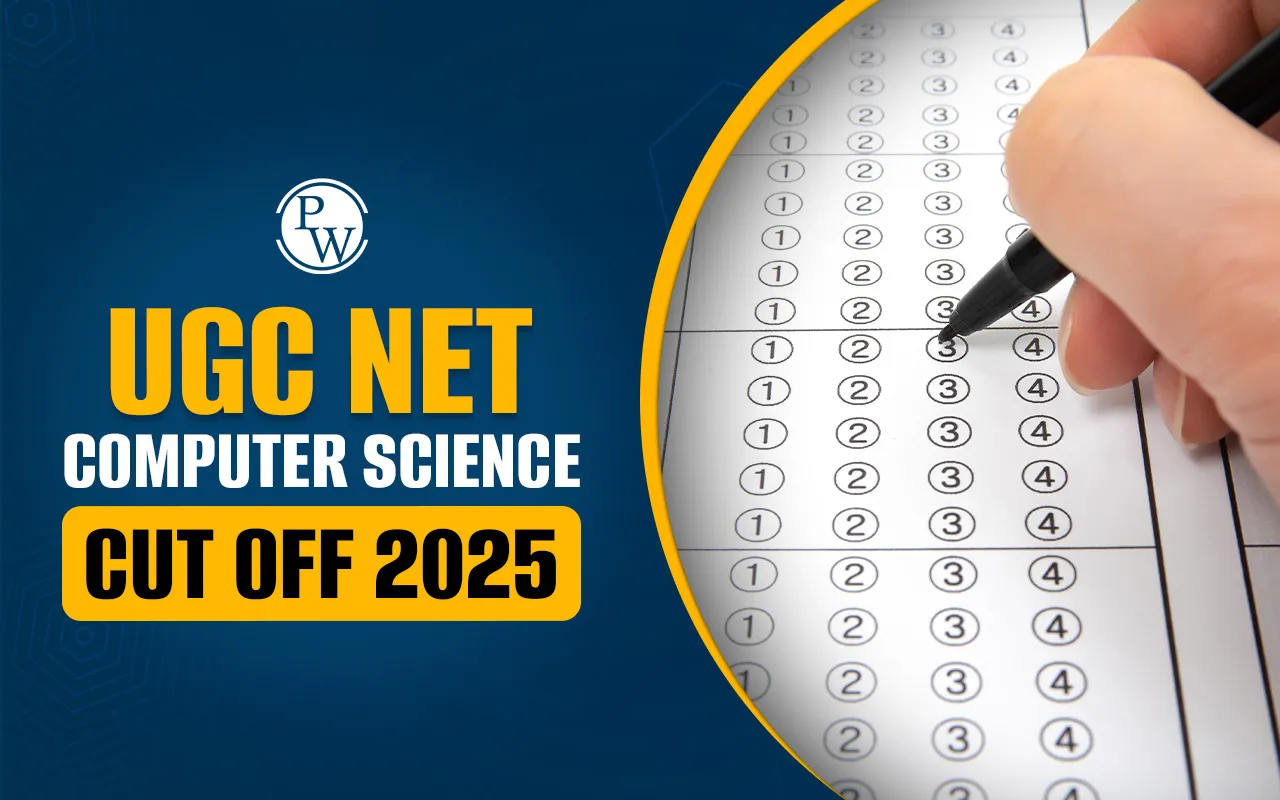
UGC NET June 2025 Preparation Tips: National Testing Agency will conduct the UGC NET examination for the June 2025 cycle soon. Candidates who are appearing for the exam and wish to maximise their score can adhere to the preparation tips. This not only helps to strategise for the UGC NET June 2025 exam but also helps in performance improvement. Candidates can also refer to the books and notes to improve their UGC NET June 2025 Preparation.
UGC NET June 2025 Overview
The following table provides a comprehensive overview of the UGC NET June 2025 examination, including key details about the exam structure, conducting body, and important information for candidates.| UGC NET June 2025 Overview | |
| Exam Name | UGC NET June 2025 |
| Exam Conducting Body | National Testing Agency |
| Posts | Assistant Professor and Junior Research Fellowship (JRF) |
| Frequency of Exam | Twice a year |
| Exam Level | National |
| Application Mode | Online |
| Types of Questions | Multiple Choice Questions (MCQ) |
| Number of Papers and Total Marks | Paper 1: 100 Marks and Paper 2: 200 Marks |
| Duration of Exam | 3 Hours |
| Language/Medium of Exam | English and Hindi |
| Official Website | https://ugcnet.nta.ac.in/ and https://www.nta.ac.in/ |
UGC NET June 2025 Exam Pattern
According to UGC NET June 2025 Exam Pattern, there will be two papers in the examination namely paper I and II. The paper I will be compulsory for all candidates but paper II will be optional.UGC NET Paper I Exam Pattern
UGC NET Paper I is a common paper for all candidates and is held for 100 marks. There are questions from different subjects like Teaching Aptitude, Research Aptitude, Reasoning, and Data Interpretation. Know about the detailed exam pattern below.| UGC NET Paper 1 Exam Pattern 2024 | ||
| UGC NET Paper 1 Sections | No. of Questions | Total Marks |
| Teaching Aptitude | 5 | 10 |
| Research Aptitude | 5 | 10 |
| Reading Comprehension | 5 | 10 |
| Communication | 5 | 10 |
| Reasoning (including Maths) | 5 | 10 |
| Logical Reasoning | 5 | 10 |
| Data Interpretation | 5 | 10 |
| Information & Communication Technology (ICT) | 5 | 10 |
| People & Environment | 5 | 10 |
| Higher Education System: Governance, Polity & Administration | 5 | 10 |
| Total | 50 | 100 |
UGC NET Paper 2 Exam Pattern
The UGC NET Paper 2 exam pattern will have a single paper and will have questions from the subject that is chosen by the candidates. There are 85 subjects in the examination and questions in Paper II will be framed on the topics prescribed in the syllabus for them.| UGC NET Paper 2 Exam Pattern 2024 | |||
| Paper | Pattern of Paper | Number of Questions | Total Marks |
| Paper II | Concerned Subject Chosen by the candidate | 100 | 200 |
UGC NET June 2025 Books
For UGC NET June 2025 preparation, the PW Store offers a comprehensive resource namely" 63 UGC NET Paper 1 Solved Papers & Notes ." This PW UGC NET book features a collection of past exam papers along with detailed explanations, making it an invaluable tool for candidates aiming to excel in the exam. It is specifically designed to enhance your understanding of the syllabus and improve your exam strategies. By utilizing this book, you can effectively prepare and boost your confidence for the upcoming UGC NET June 2025 examination.UGC NET Notes 2025
PW UGC NET Notes are concise summaries of key concepts, theories, and important topics covered in the syllabus for the UGC NET examination. These notes serve as a valuable study aid, allowing candidates to quickly review and reinforce their understanding of essential material. By distilling complex information into manageable sections, UGC NET notes help streamline the revision process, making it easier to retain critical details. Utilizing these notes effectively can enhance exam preparation, boost confidence, and improve performance on the day of the test.
UGC NET June 2025 Subject Wise Preparation Tips
Preparing for the UGC NET June 2025 examination requires a strategic approach tailored to each subject. Understanding the specific syllabus, key concepts, and exam patterns for your chosen subject is crucial for effective preparation. By focusing on subject-wise preparation tips, candidates can enhance their knowledge, improve retention, and develop the skills necessary to tackle the exam confidently.Paper I Preparation Tips
1. Syllabus Breakdown: Paper I covers Teaching Aptitude, Research Aptitude, Communication, Reasoning, Data Interpretation, and ICT. Create a detailed outline of each topic to ensure comprehensive coverage.
2. Teaching Aptitude: Focus on understanding different teaching methods, learning theories, and classroom management techniques. Use case studies to apply these concepts practically.
3. Research Aptitude: Familiarize yourself with research methodologies, types of research, and ethical considerations. Practice formulating research questions and hypotheses.
4. Communication Skills: Enhance your verbal and written communication by engaging in discussions, writing summaries, and practicing presentations. Use resources like TED Talks for effective communication techniques.
5. Reasoning and Data Interpretation: Dedicate time to solving logical reasoning puzzles and data interpretation exercises. Use online platforms for practice and timed quizzes to improve speed.
6. Information and Communication Technology (ICT): Stay updated on the latest technologies used in education. Familiarize yourself with basic computer operations, software applications, and online teaching tools.
7. Mock Tests and Time Management: Regularly take full-length mock tests to simulate exam conditions. Focus on managing your time effectively to ensure you can complete all questions.
Paper II Preparation Tips
1. Subject Selection: Choose a subject that aligns with your academic background and interests. Ensure you have access to comprehensive study materials specific to that subject.
2. In-Depth Study: Dive deep into the core topics of your subject. Create a study schedule that allocates time for each topic based on its weightage in the exam.
3. Reference Materials: Use standard textbooks, research papers, and online resources specific to your subject. Make notes of important theories, models, and case studies.
4. Previous Years’ Papers: Analyze past years' question papers to identify recurring themes and question patterns. This will help you focus your studies on high-yield topics.
5. Current Affairs and Trends: Stay informed about recent developments in your field. Subscribe to relevant journals and follow academic blogs to keep your knowledge up to date.
6. Practice Writing: Develop your writing skills by practicing essay-type questions and short answers. Focus on clarity, coherence, and critical analysis in your responses.
7. Peer Discussions: Engage in discussions with peers or mentors to clarify doubts and gain different perspectives on complex topics. This collaborative approach can enhance understanding.
8. Regular Revision: Set aside time for regular revision of all topics. Use flashcards or summary notes to reinforce key concepts and facilitate quick recall.
UGC NET June 2025 Preparation Tips FAQs
How much time is sufficient for UGC NET preparation?
How to clear UGC NET easily?
Can I clear the NET in 3 months?
Can I crack JRF in 6 months?
Who is the topper of NET JRF 2025?










